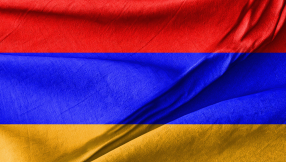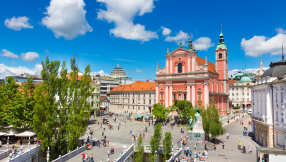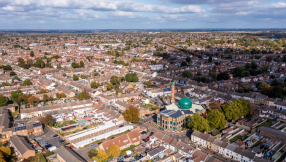France restarts bid to free Colombia FARC hostages
French Foreign Minister Bernard Kouchner flew into Bogota in the first leg of a three-nation tour during which he will also meet Ecuador's president and Venezuela's Hugo Chavez, who negotiated the release of six rebel captives this year.
Kouchner planned to address lingering diplomatic tensions among the three Andean countries after the Colombian military attacked a rebel camp inside Ecuador in March, killing a top commander and setting off a week-long regional crisis.
But hopes for a deal to free captives have dimmed as Revolutionary Armed Forces of Colombia, or FARC, commanders hardened their stance after the attack. They rejected the emergency medical team Paris sent to try to treat Betancourt, who is believed to be ill, in their jungle camps.
"The message is very simple, that we will keep on working to find a way to free the hostages," French Ambassador Jean-Michel Marlaud told local radio. "Tensions among the three countries are complicating efforts to free the hostages."
Colombia's decades-long conflict has eased under President Alvaro Uribe, a U.S. ally who has sent troops to retake areas under the control of armed groups. The FARC is still fighting in remote areas aided by funds from cocaine trafficking.
Betancourt, three U.S. contractors and more than 30 local politicians, troops and police are key hostages the FARC wants to swap for jailed rebels, including three fighters held in U.S. prisons.
The renewed French efforts could bring some relief to families of kidnap victims, some of whom have been held for more than a decade in secret campsites in Colombia's southern jungles, where guerrillas are still a potent force.
Kouchner met with Betancourt's mother before seeing Uribe but gave no statement after their conversation.
"This shows the interest France has in helping us free Ingrid and all the hostages," Betancourt's mother, Yolanda Pulecio, told reporters.
FAILED FRENCH MISSION
France sent a medical mission this month to treat Betancourt, who fellow hostages say suffers from hepatitis and has been chained up after attempts to flee. But the FARC rejected it because Paris failed to secure a prior agreement.
In March, Colombian troops bombed inside Ecuador, killing Raul Reyes, a top rebel leader who had been engaged in talks with France and with a left-wing Colombian senator close to Chavez over a deal to free hostages.
Rebels say his death has put a halt to any more individual releases like those arranged by Chavez.
A self-styled socialist revolutionary, Chavez is seen by hostages' families and some analysts as key to any hostage negotiations with the Marxist rebels.
But Uribe, popular at home for his tough stance with the FARC, rejects any formal role for Chavez after the Venezuelan leader openly backed more recognition for the rebels. Chavez says he has now lost contact with FARC commanders.
Once a peasant army, the FARC is labelled a drug-trafficking terrorist organization by U.S. and European officials.
Rebels say they want Uribe to demilitarize a New York City-sized area as a safe haven for hostage talks. But Uribe says that would allow the rebels to regroup and he has offered a smaller zone under international observation for talks.













